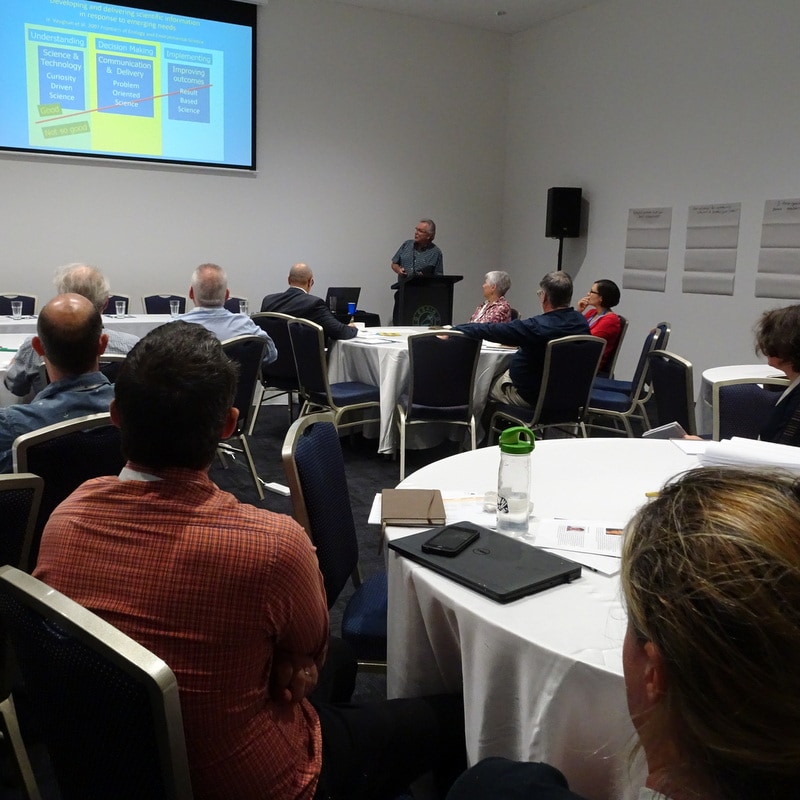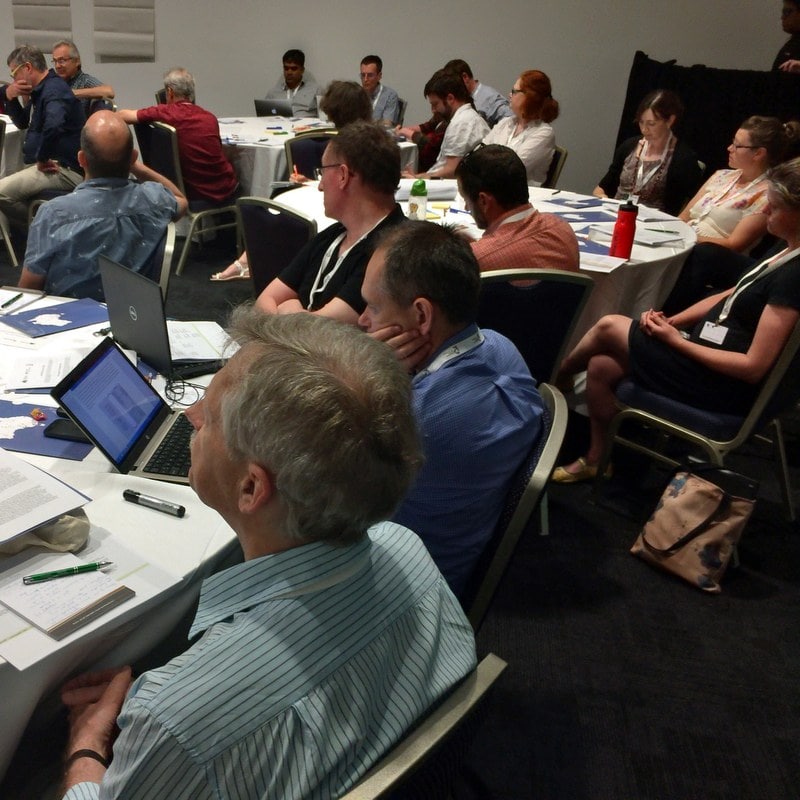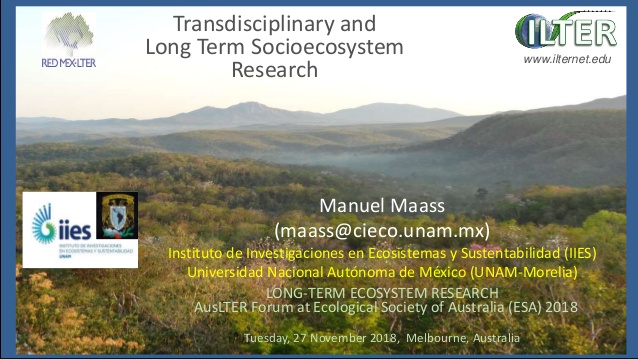Late last month, TERN, the Ecological Society of Australia, and the Ecosystem Science Council hosted a day-long forum to discuss the current state and future form of the long-term research community in Australia. Weren’t one of the 30-plus people attending? Not to worry, read on for a brief summary or download the podcast to re-live the whole day.
Long-term researchers occupy a unique space in the research landscape, primarily due to the disconnect between the inherent level of time commitment—in research that can span a lifetime—and the increasing uncertainty of ongoing funding. This is despite the fact that almost everyone accepts the value and importance of long-term studies.
Feedback from recent International Long-Term Ecological Research (ILTER) network meetings indicates that Australia is leading the way in many areas of long-term research infrastructure provision and data capture. It also suggests that we share some of the challenges of ensuring national and global collaboration for site registration and use of bioacoustics research data.
To address these challenges and identify some common goals that would bring this community together along with new domains, ideas and energy to reinvigorate AusLTER, one of the founders of ILTER, TERN together with the Ecological Society of Australia (ESA), and the Ecosystem Science Council (ESC) hosted a one-day forum at the November 2018 ESA annual conference in Brisbane.
Over 30 people attended the forum including three eminent international authorities in the long-term research space globally; Dr Manuel Maass (National Autonomous University of Mexico); Prof Bob Scholes (Wits University, South Africa) and Prof Phil Robertson (Michigan State University, USA).
The international speakers provided three different but complementary perspectives on long-term research philosophy, in-country support, challenges and their personal views on how this research will be shaped by questions driven by politics, society and science, and probably a blend of all those factors.
A group of esteemed Australian ecology practitioners then reflected on their experiences of long-term research within the Australian context. This panel comprised Tim Clancy, Glenda Wardle, Bek Christensen, Alan Andersen and Fiona Dickson. Between them, they represented academic researchers, researchers from government departments, funding agencies and peak ecology bodies.
There were opportunities during the day for group discussions on a number of key questions, and these will be summarised and made available to anyone who is interested. In addition, all of the day’s discussions were recorded and have been produced as podcasts.
Toward the end of the day, we were able to welcome one more international guest via the Internet. Dr Michael Mirtl, current chair of the ILTER, joined the forum live from Vienna to reinforce much of what was said during the day and encourage the Australian LTER community to be participants in addressing looming worldwide questions and challenges.
There was much goodwill and wisdom in the room, but one metaphor that resonated strongly was from Glenda Wardle, who said something along the lines of “long-term research is like waterholes in the landscape – no-one asks what they are for – they are understood to be essential, but how many are there or should there be? Building a network and having a place where this can be discussed will allow more mature conversations and better listening between disciplines.”
A statement from the forum organisers and participants will be released via TERN, ESA and ESC over the coming weeks.
Weren’t able to be there? Not to worry, you can view the presenter’ slides and listen to recordings of the sessions using the links below.


Session 1- Global Long-Term Research
Long-term ecosystem research networks and critical zone observatories – Manuel Maass, Bob Scholes, Philip Robertson
Session 1 Question Time
Reporting back from group discussions on what we want Australia’s LTERs to be
Session 2 – Long-Term Research in Australia
Panel discussion on benefits of a coordinated AusLTER community of practice – Tim Clancy, Glenda Wardle, Bek Christensen, Fiona Dickson and Alan Andersen
Who needs to be involved and what resources are required for AusLTER? – group discussions.
Long-term research and data support systems – panel with Hamish Holewa ALA, Siddeswara Guru TERN, and Sarah Richmond EcoCloud and BCCVL.
Session 3 – Partnerships and Collaboration
Taking the long view in supporting long-term research and the agreed next steps – all panelists







